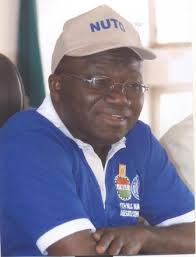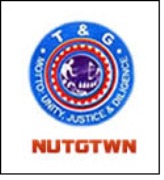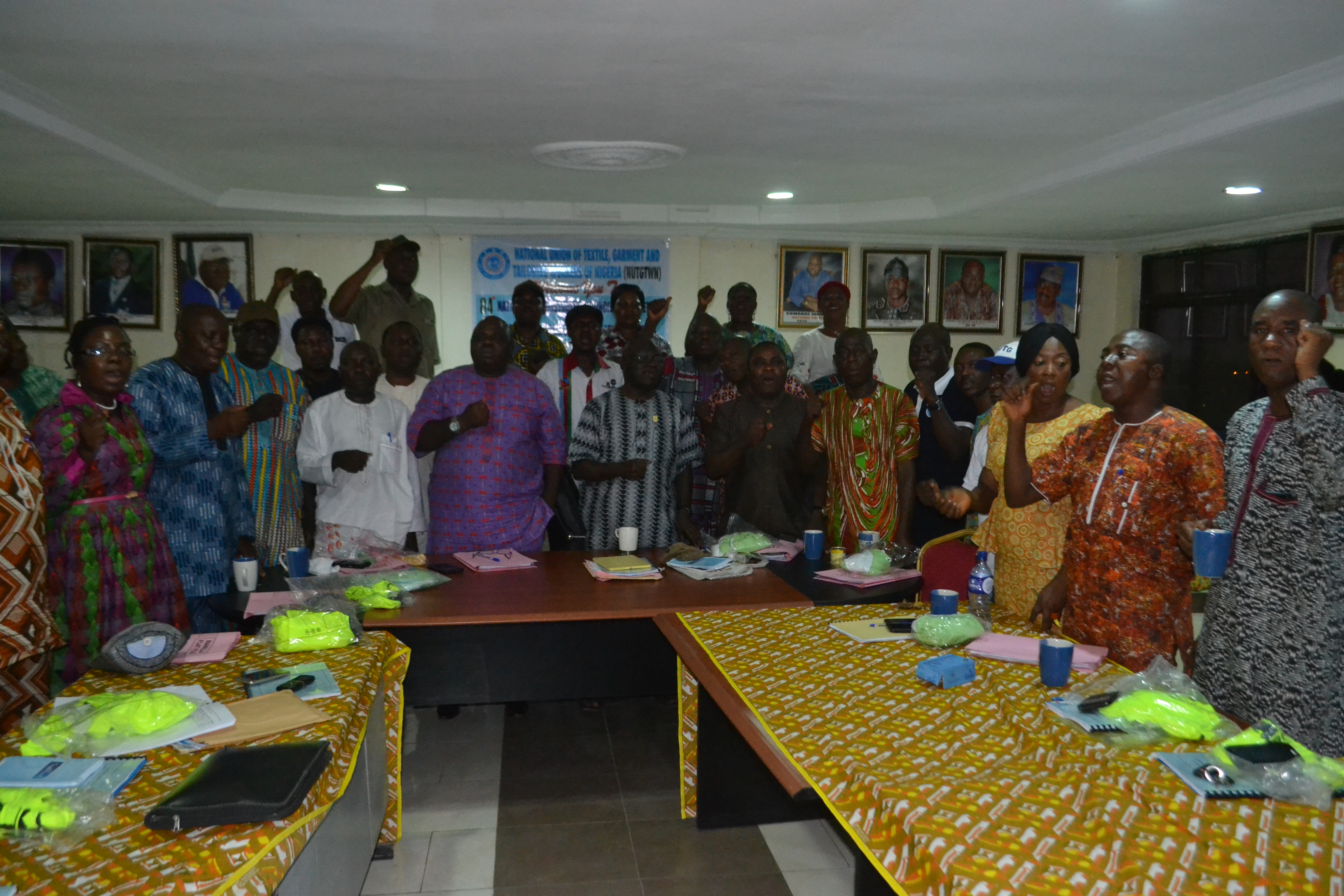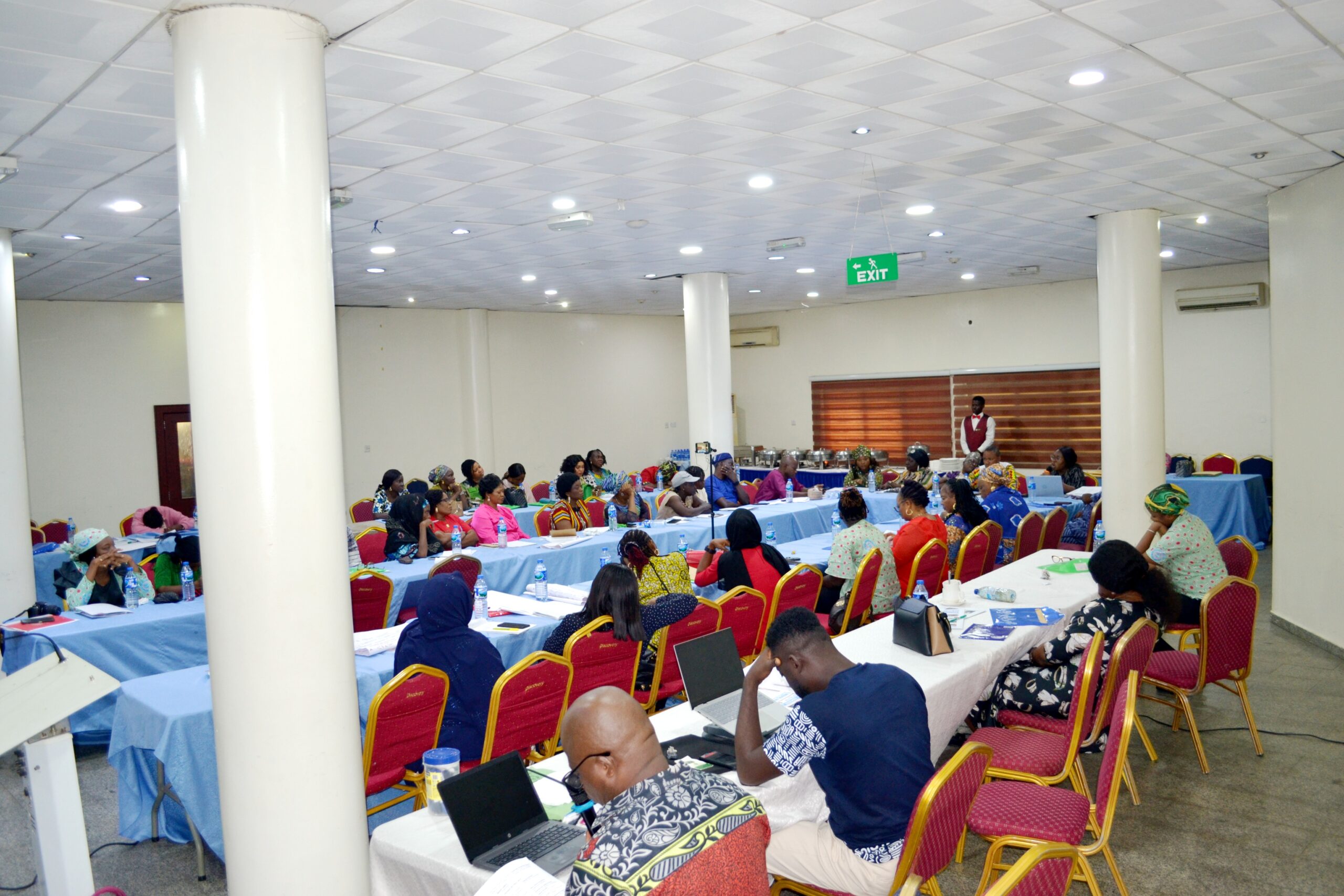
This week, all roads lead to the ancient city of Kano, (Centre Of Commerce!) for the 11th Quadrennial National Delegates’ Conference of the National union of textile, Garment and Tailoring Workers of Nigeria, (NUTGWN) arguably the most dynamic, organized private sector union affiliated to 8million member-Nigeria Labour Congress, (NLC) and 50-million strong Geneva-based Industrial Global Union, Switzerland.
The 11th Delegates’ Congress of the pioneer industrial workers’ union (formed in 1978!) opens on Thursday, the 17th of March at Meena Event Place, No. 2 Lodge Road, Kano. The theme of the 2016 Conference is Labour and Industry: Back to Basics. The choice of Kano legitimizes the theme, being the basic cradle of traditional value-adding manufacturing activities and industrialization in Africa. Kano is the second largest industrial center in Nigeria, after Lagos. Of course it is the largest in Northern Nigeria with textile, tanning, footwear, cosmetics, plastics, enamelware, pharmaceuticals, ceramics, furniture and other industries, agricultural implements, soft drinks, food and beverages, dairy products, vegetable oil, animal feeds etc.
The vision of the late Premier of the Northern Region, Sir Ahmadu Bello was to make Kano Manchester of Nigeria (an euphemism for industrial revolution). Textile production was the most significant productive activity in pre-colonial West Africa. By early 20th century, many people were engaged in indigo cultivation. Specifically in 1912, a significant number of people were in dyeing in the legendary Kano Emirate, “out of 10, 348 people devoted to cloth manufacturing in a small Kano district, 5499 were weavers, 650 were beaters, while, as many as 4199 were dyers”. It is a home coming for the workers’ organization that still has as many as some 4,000 workers (a sharp drop from some 50,000 workers in the 80s) in 13 functioning factories (a drop from 40 firms in the late 80s!) and a functioning sub-Secretariat in the city.
The Delegates’ Conference is the highest decision making/agenda setting organ of our union with The Union’s National Delegates’ Conference holds every four (4) years. The highpoint of the Delegates’ Conference is agenda setting, assessment of the state of textile and garment industry, welfare improvement, union finance and investment as well as election of new National Officers to run the affairs of the Union in the next four (4) years.
Textile industry is a strategic non-oil industry which in spite of its depressed state is still largest private sector employer of labour after government. This conference compliments President Muhammadu Buhari’s campaign promise with respect to re-industrialization, textile revival and job creation expectedly to be declared open by the Vice President, Professor, Yemi Osinbajo.
Kano state government under Dr. Abdullahi Umar Ganduje, is committed to the revival textile industry like his predecessor. Kano is set to establish as many as new 44 garment factories in the 44 local governments of the state. Nigeria Textile and Garment industry spans the entire clothing value chain, although most of the activities are in the fabric production. The industry has been in steep decline, no thanks to lack of electricity, smuggling and lack of patronage. This free fall has been slightly moderated in recent years by series of interventions including the Cotton, Textile and Garment (CTG) intervention fund managed by the Bank of Industry (BOI). It is estimated that Nigeria spends over 2 billion dollars on imported fabrics as the crisis in the industry has been aggravated by high local production cost and cheap import from Asia. The launch of the Nigeria industrial revolution plan in 2014 and the National Cotton, Textile and Garment policy in 2015 raised some hopes for the revival of the Textile and Garment industry in Nigeria. The hope for revival was further accentuated by the campaign promises of President Buhari and the All Progressives Congress (APC) to revive Nigerian Textile Industries as a vehicle for addressing youth unemployment.
Yet, the Union kept focus on her campaigns and policy advocacy through direct engagement with the relevant agencies of government. Last year, the Union expanded the African industrialization day campaign to cover issues not just in the Textile and Garment sector but across all manufacturing sectors of the economy. Since 2012, activities marking the Africa Industrialisation Day (AID) have sharpened the focus of the media and the public on the challenges of industrial manufacturing in Nigeria and the expected intervention from the relevant agencies of government. The resolutions at the Kano Congress are expected to further raise the noise level of the need to reindustrialize Nigeria and create mass decent jobs for the increasingly restless and reckless millions of youths. The importance and significance of industrialization cannot be overemphasised for a developing economy like Nigeria. Development economists have stressed the role of industry in the transformation of the economy in terms of production of goods and services, employment generation and poverty eradication. There is a direct relationship between development and industrialization. Countries with lower unemployment and which have eliminated the problem of mass poverty have relatively higher concentration of industries. Nigeria must get back to the basics: Industry and mass jobs. It is not oil and gas sector versus non-oil sector, it is value addition in all the actors including oil and gas. It is industrialization, industrialization and industrialization.








